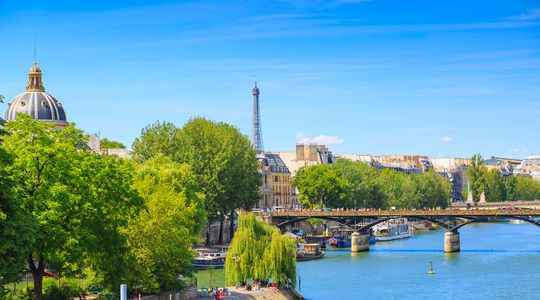- The secret society of those who walk at random
Rémy Oudghiri likes to walk randomly in the streets of Paris. Little by little, he realizes that others share his taste for wandering. How to recognize them? Perhaps quite simply by approaching random passers-by, in the street and in the cafés frequented by the author, to ask them this harmless and intimate question: “Do you like to walk at random?” “Can we do an investigation on such a subject?” asks a stroller. “And why not? We do surveys on just about everything these days,” replies the author, well placed to know since he is himself a sociologist.
However, the study in question here has nothing academic about it and the author’s approach borrows as much from the surrealists as from the methods of fieldwork. Between two random encounters with individuals who also walk at random, Oudghiri delves into his childhood memories in Casablanca where he grew up to track the origins of his love of wandering. In an urbanized and interconnected world, the solitary walkers that the author encounters are of all ages and conditions, even if they share the same romantic belief that adventure still awaits them around the corner. We want to believe them and follow in their footsteps, not without having disabled GPS navigation.
The Top Secret Society of Lone Walkers, by Rémy Oudghiri. PUF.
- The ruins were better before
This summer, half of my Instagram feed is posting photos of Greek or Roman archaeological sites. The remains of ancient civilizations sometimes disappoint the visitor, but everyone agrees to grant them the status of ruin. The philosopher Bruce Bégou, accustomed to the study of objects and places of our modernity, from the American motel to the life of airports, devotes a rich and surprising essay to the ruins that no longer surround us. The paradox exposed by the author is that contemporary architecture, that of office buildings, pavilions, roadside shopping centers deteriorates very quickly, but that these modern constructions “give rise, when they collapse , to rubble and not to ruins.”
It follows that we are surrounded by “post-ruins”, buildings with planned obsolescence without the latter managing, unlike classical buildings and the first industrial age, to become ruins when they disintegrate. Because the status of ruin is not given to the first heap of rubble that comes along: the future ruin “must be fragile enough to be a ruin and solid enough to be a ruin of the antique type, namely a ruin which lasts and gives impression of eternity”. Begou unfolds a fine reflection on our ways of living and our relationship to time, nourished by a patient work of dialogue with philosophers, architects or historians who share his interest in ruins.
Obsolescence of Ruins, by Bruce Begout. Editions Inculte.
- Write the city of tomorrow on the city of yesterday
The little book co-written by Christine Leconte and Sylvain Grisot also takes a look at our built heritage. Nowadays “we are abandoning bits of town to rebuild a little further”, note the president of the Order of Architects and the town planner, founder of the agency dixit.net. However, the time of new construction and urban sprawl must give way to a logic of repairing the city, that is to say of rewriting the city on itself. At the root of this bias, the conviction of the authors that “the city of the future is already here”: 80% of the city in which we will live in 2050 has already been built, only 20% remains to be built.
The essay contains a few well-felt passages on the impasses of the real estate industry, a system drugged up with tax loopholes that often brings out of the ground buildings that are often dreary. Defending a “circular” and “sharing” town planning, the authors make themselves the spokespersons of the dense city without wiping out from the map the town planning of the outskirts, which is now part of the city in the same way as the portions more “historical” of our agglomerations. Recent climatic episodes lend credence to the idea that urban transition is a social emergency. There remains a challenge, that of making this city of tomorrow desirable in the eyes of the inhabitants.
Let’s fix the city! Proposals for our cities and territories, by Christine Leconte and Sylvain Grisot. Apogee Editions.
